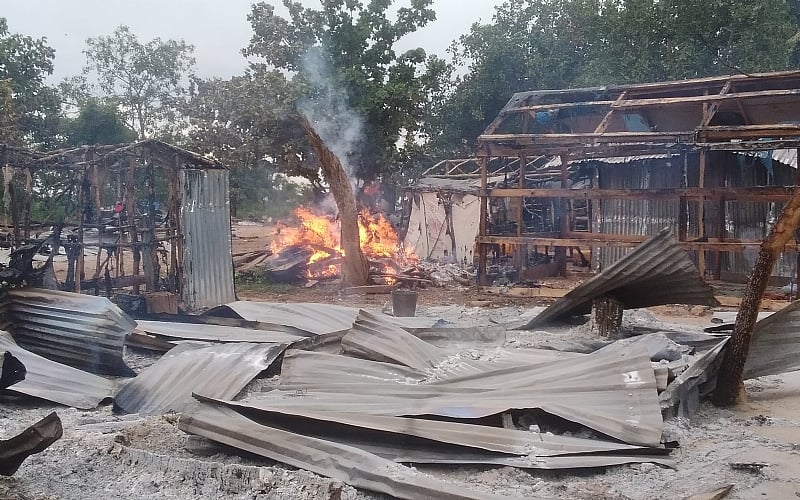The Bono Region of Ghana has launched a significant offensive against illegal mining, commonly known as “galamsey,” dismantling a major illegal mining hub and signaling a sustained campaign to combat the devastating practice. In a coordinated operation involving military and police personnel, authorities raided the “Operator” settlement near Banda-Boase, a notorious center for illegal mining activities. The operation, spanning over ten hours, resulted in the destruction of numerous structures housing over 2,000 illegal miners, the seizure of heavy equipment including 11 excavators, 16 motorbikes, and several tricycles, and the demolition of numerous changfang machines operating along the Tain River. Thirty-one individuals involved in the illegal operations were apprehended and are awaiting prosecution. This decisive action marks a critical step in addressing the widespread environmental and socioeconomic damage inflicted by galamsey in the region.
This intervention, sanctioned by Bono Regional Minister Joseph Addae Akwaboa, is not an isolated incident but the commencement of a weekly campaign aimed at systematically dismantling illegal mining operations and reclaiming affected lands. The Minister emphasized the unwavering commitment of the government, from the President down to regional officials, to eradicate galamsey and its detrimental consequences. A detailed report on the operation and the broader scope of illegal mining in the region will be submitted to the Minister for Lands and Natural Resources to inform further strategic actions and resource allocation. The Minister commended the dedication of the military and police forces involved and issued a stern warning to illegal miners to vacate forest reserves, prioritizing their own safety amidst the intensified enforcement efforts.
The environmental devastation wrought by galamsey in the Bono Region, especially within the Banda District, demands urgent attention. Deforestation has stripped the landscape bare, while water pollution, primarily from chemical runoff from mining operations, has severely compromised the Tain River, a vital water source for local communities. The river’s transformation into a milky brown stream, laden with toxic substances, poses a direct threat to the Bui Dam, a crucial hydroelectric power plant serving Ghana. This environmental degradation not only jeopardizes the health and livelihoods of communities dependent on the river but also threatens the nation’s energy security.
Beyond the environmental impact, galamsey has inflicted significant damage on the region’s agricultural sector, particularly cashew farming, a major economic activity. The destruction of cashew farms has driven many farmers into economic hardship, forcing them to lease their land to illegal miners, exacerbating the problem while sacrificing their own income and long-term livelihoods. This vicious cycle undermines the region’s agricultural productivity and food security.
The socioeconomic implications of galamsey are profound. The destruction of both water resources and farmland has crippled local economies. Farmers and agricultural aggregators, deprived of their primary sources of income, face increasing poverty and food insecurity. The ripple effect of these economic hardships extends throughout the community, impacting local businesses and overall development.
Perhaps the most alarming consequence of galamsey is the severe health risk posed by the indiscriminate use of toxic chemicals. Mercury and cyanide, commonly employed in gold extraction, contaminate water sources and the environment, posing a grave threat to human health. Long-term exposure to these chemicals can lead to a range of debilitating health problems, impacting entire communities and future generations.
The Bono Regional Minister’s commitment to intensifying efforts against galamsey signals a crucial turning point in the fight against this destructive practice. The focus on protecting the environment, safeguarding local livelihoods, and preserving the integrity of the Bui Dam underscores the recognition of galamsey’s multifaceted threat. Stakeholders, including cashew farmers and industry experts, have echoed the call for stricter enforcement of mining regulations and the promotion of sustainable agricultural practices. The future of farming communities in the Bono Region hinges on a concerted effort to balance economic development with environmental protection and the health of its citizens. The ongoing campaign represents a critical first step in reclaiming the region’s natural resources and securing a sustainable future for its people.














